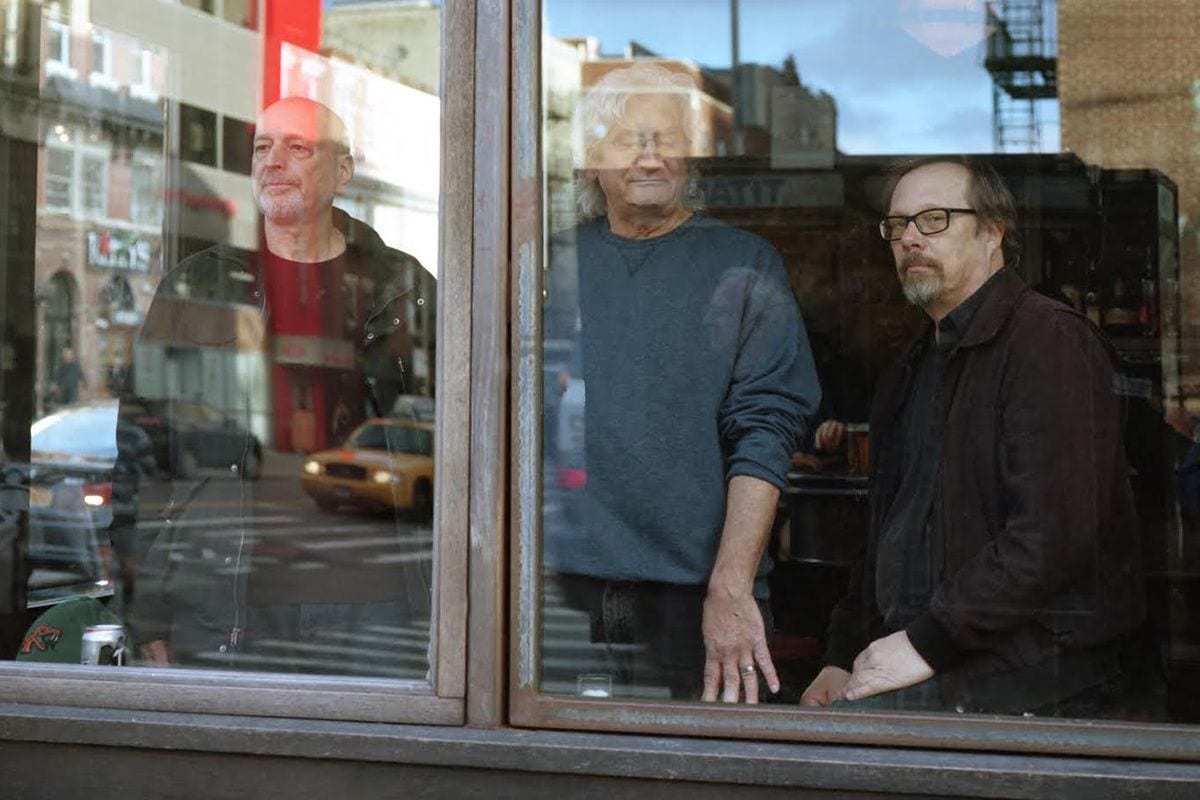
The first minute of “Honestly Now”, the opening track on the Schramms‘ Omnidirectional, provides a clue as to where the album is going to go, and how it is going to get there. Beginning with about 20 seconds of squalling bass clarinet, courtesy of Doug Wiselman, the song continues with Dave Schramm strumming an acoustic guitar for another 40 seconds before eventually singing the song’s title. Even then, though, Schramm takes his time, crooning, “Honest / Honestly / Honestly now.”
As the album title suggests, Omnidirectional, the first new album by the Schramms in nearly two decades, may indeed go in all directions at once, but it is going to get wherever it is going at its own unhurried pace. Kind of like the Schramms.
The Schramms are led by guitarist Dave Schramm, who spent about two years as lead guitarist for Yo La Tengo, including work on their 1986 debut album, Ride the Tiger. Schramm then left Yo La Tengo to form his eponymous band, though he has occasionally returned to work with Yo La Tengo. After releasing their debut, Walk to Delphi, in 1990, the Schramms continued to record albums regularly up until 2000’s 100 Questions, but the band has kept a low profile since releasing a live album in 2003.
Omnidirectional picks up where the Schramms’ last album, 100 Questions, left off in 2000. Aiding Dave Schramm on this album are fellow Schramms Ron Metz (drums) and Al Greller (bass), along with other musicians, as needed. “Honestly Now” is an unfolding account of loss, punctuated by minimal piano notes. Schramm’s electric guitar leads underscore the sadness of lyrics, “There’s a spot on the sun / Deep maroon / What does it feel like to leave so soon”, and “Still here / Left behind / What does it feel like / To cross that line?”
The Schramms continue to confront loss on the album’s second song, the slightly more upbeat “Spent”. Schramm sings, “But it’s all right now / Cause we’re happy now / Yeah we’re happy now / But I don’t know how” in such a way that indicates that the narrator of the song either a) is not really happy but trying to convince himself that he is; and/or b) he is genuinely experiencing moments of happiness, but is bewildered as to how or why, given the circumstances.
This ambivalence permeates Omnidirectional, even finding its way into lines that are printed inside the CD’s gatefold sleeve: “My heart returns to the past / My head calls it forward / While my heart is calling it back / My head turns to normal / My heart returns to the past / My head calls it forward.” Schramm recites these words at the end of “New England”, a moody highlight that attempts to reconcile the dichotomy of living in the present tense, while being drawn, via memories and memorabilia, into the past.
Musically, Omnidirectional largely follows the contemplative template set forth by “Honestly Now”: midtempo-to-slow songs that become showcases for Dave Schramm’s understated but compelling guitar work. It is tempting to wish for a few more up-tempo tracks that might make Omnidirectional a bit more accessible, though shiny, happy pop hits would probably have distracted from the mood that Schramm establishes so well here. Just be forewarned: Omnidirectional does not, generally speaking, rock. But not everything needs to rock.
Omnidirectional closes with “Two A.M. Slant”, an extemporaneous acoustic guitar piece. This lovely guitar solo, which does indeed sound like it was recorded in the middle of the night, seems to offer an unspoken suggestion that making one’s own art – or experiencing another’s work of art – can provide solace and maybe even a way forward for anyone who is working through an emotional time in their lives. Which, of course, means all of us, at one time or another.

